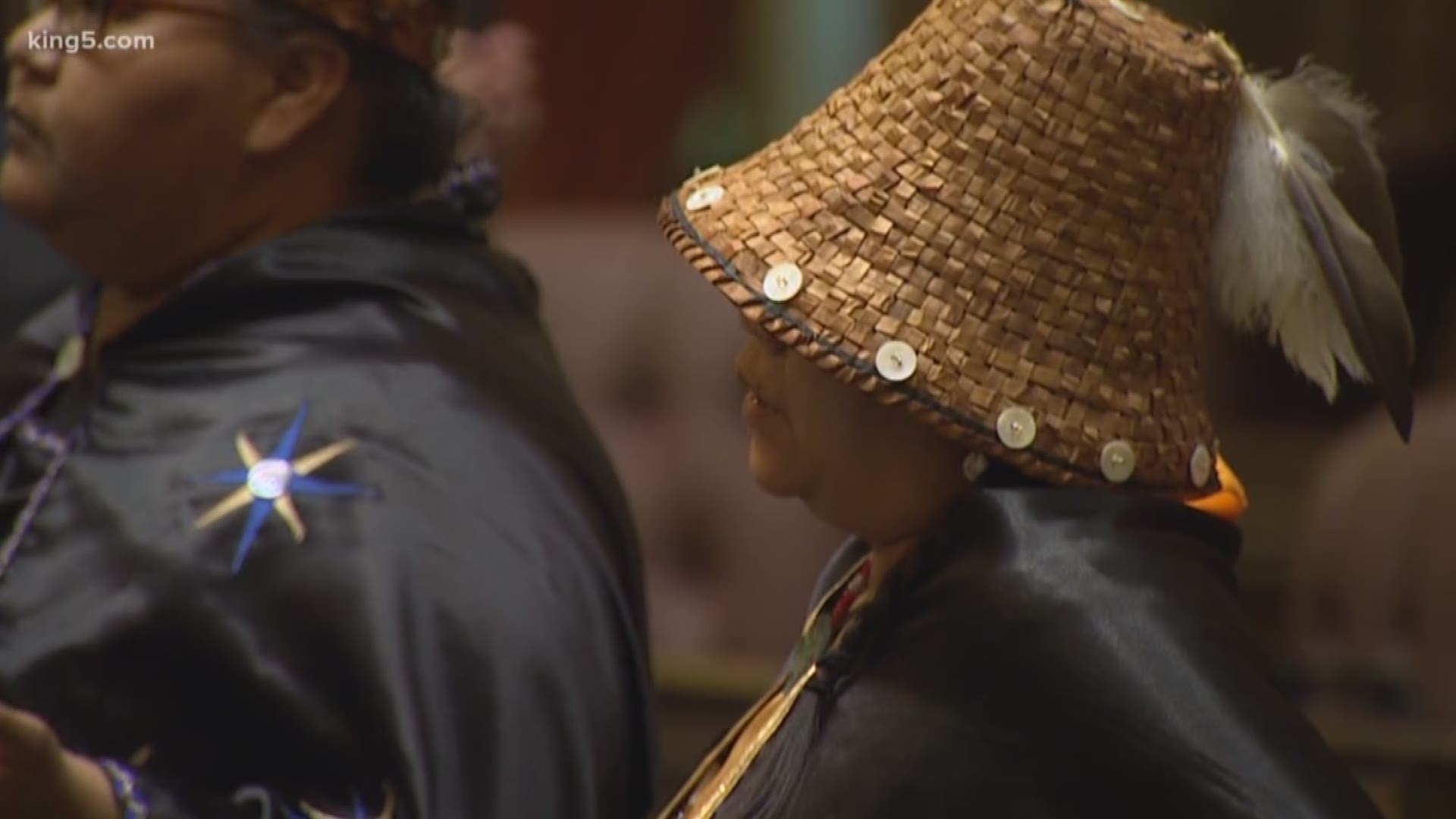OLYMPIA, Wash. — Gov. Jay Inslee signed a bill Thursday expanding voting services on tribal reservations.
The bill, sponsored by Democratic Sen. John McCoy of Tulalip, requires county officials to establish at least one voting drop box on any tribal reservation if requested by the tribe.
"We are rich in our tribal communities that helped build this state," Inslee said Thursday at a signing ceremony for the bill. "Every time we make voting easier, we take another step toward a more perfect union."
The bill passed the Legislature by broad margins.
Along with drop boxes, the bill allows tribal members to use tribal identification cards to register to vote, and to register using non-traditional addresses, including a narrative description of the location of their residence. Another address option — for tribal members to use a tribal government building designated for ballot collection as their mailing address — was also added during the legislative process.
Different tribes throughout the state experience different voting issues, in large part depending on how rural their reservations are, McCoy said.
"For the Puget Sound tribes it's not as great of an issue, but for the tribes out on the Olympic Peninsula and in Central Washington, it has been," said McCoy.
Asa Washines, who said he is a Yakama Nation tribal member and former member of the Yakama tribal council, attended the bill signing Thursday and described the situation on the tribe's Central Washington reservation.
In the 2018 election the sprawling reservation had one ballot drop-box, meaning some members had to drive 30 miles (48 kilometers) or more.
"It was hard for people to drive that far to drop off their ballots," Washines said.
Brian Cladoosby, chairman of the Swinomish Tribe, said that for his community the challenges are different from those faced by tribes in more rural areas.
Located in Northwest Washington, the Swinomish reservation is within half an hour of urban centers and the busy Interstate 5 corridor.
Rather than filling an immediate need there, Cladoosby said he views the bill as a safeguard against any future attempts to disenfranchise Native American voters.
Nationally about two-thirds of Native Americans are registered to vote, compared to about three-quarters of eligible non-Hispanic Caucasians, according to the National Congress of American Indians, a nonprofit advocacy group, and Census data.
The bill also adds enforcement rules allowing the tribal governments, private citizens, or the state attorney general to sue county auditors that don't act on requests from tribal governments for ballot boxes.
Non-traditional addresses were already permitted under state law in certain circumstances; the bill broadly adds voters who live on tribal lands to the list.

